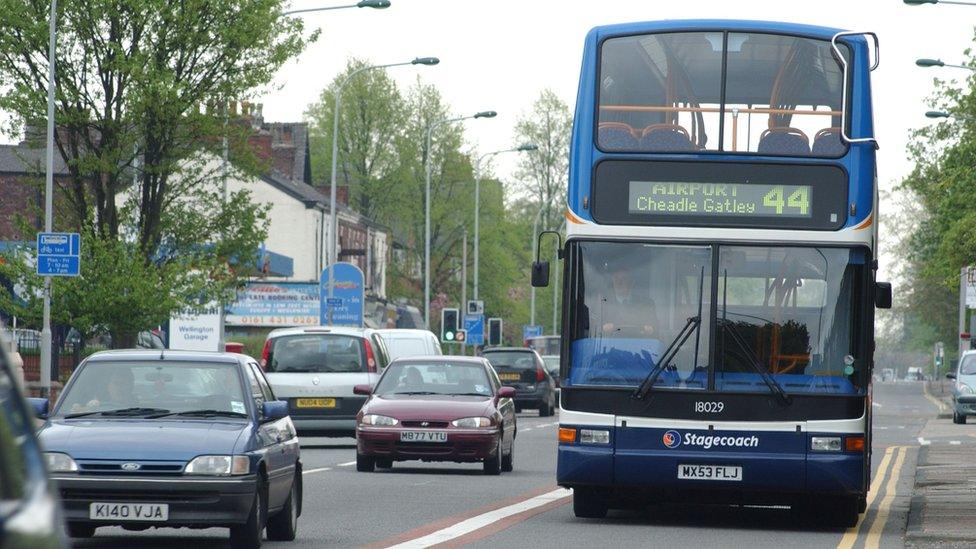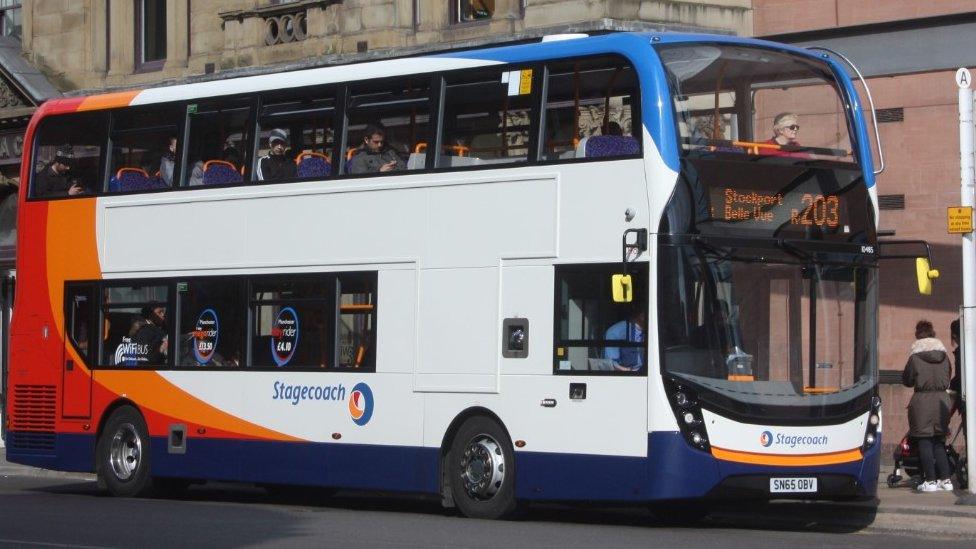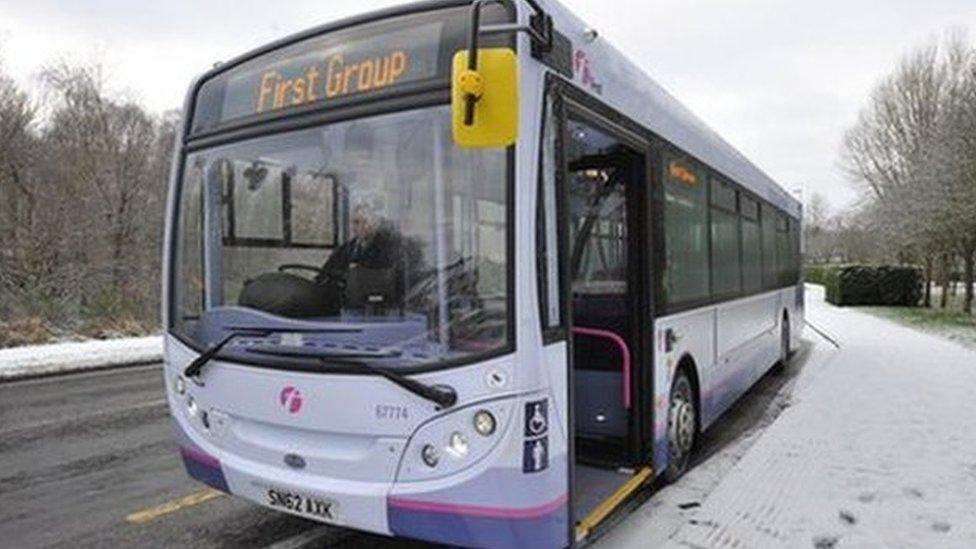Coronavirus: Stagecoach and FirstGroup count the cost
- Published

Stagecoach bus
Stagecoach and FirstGroup have stepped up their efforts to mitigate the impact of the coronavirus pandemic on their businesses.
Both transport firms said they were cutting costs and reducing capital expenditure following a slump in demand for their services.
In separate trading updates, they said the crisis was "unprecedented".
However, the transport operators stressed that they remained in a strong financial position.
Perth-based Stagecoach revealed that concessionary ticket users on its regional buses had fallen by about 50% as a consequence of the Covid-19 virus, while the number of customers directly purchasing tickets for travel was down by about 40%.
However, it said it was taking "decisive" action to mitigate the loss of revenue, which included making no new non-essential capital commitments and freezing "all but essential recruitment of new staff".
'Challenging environment'
Its directors are also sacrificing 50% of their pay for an unspecified period of time and will not receive any bonuses this year.
The group said pay negotiations and decisions in respect of other staff "will reflect the challenging environment we currently face".
The company is currently reducing its regional bus mileage to take account of the changes in customer demand.
It is also in discussions with "relevant authorities" about protecting the sums it receives for concessionary travel, tendered services, school services and the bus service operators grant.

Stagecoach said it had now invested more than £1bn in new buses and coaches since 2006-07
Stagecoach also said it had more than £290m of available cash and undrawn, committed bank facilities to "underpin the continuity of the business".
Chief executive Martin Griffiths said: "We are all facing an unprecedented challenge at this time and the impact is being felt by our business and employees as with many others.
"Importantly, we have good liquidity and are taking the right, decisive actions to help mitigate as much of the impact of the current situation as we can."
Meanwhile, Aberdeen-based FirstGroup reported a "substantial" drop in passenger numbers for its businesses in the US and the UK.
It said its North American First Student service had been affected by the closure of almost all of the schools which it served, while its US-based First Transit business was experiencing "significantly reduced service requirements".

Its US Greyhound division has seen revenues fall by about 65% as the outbreak and government advice has developed.
The group said it was now in "very active discussions" with many of its customers about future service levels and full or partial payments in lieu of reduced service.
Meanwhile, its First Bus business, which operates about 20% of regional bus services in the UK and Ireland, has seen fare-paying passenger revenue declines and concessionary volume declines of about 65%.
First Bus anticipates further reductions in demand and is rapidly reducing service levels to weekend timetables which will reduce mileage significantly across its networks.
The group's UK rail wing has seen passenger volumes fall substantially since last week, with revenue up to 90% lower over the last few days.
FirstGroup said it had "significant current liquidity", including £400m in committed undrawn bank facilities and free cash.
Measures it has already taken to mitigate revenue losses include putting future capital expenditure orders on hold and implementing salary deferrals and sacrifice.
Chief executive Matthew Gregory said: "We have taken immediate and significant actions to preserve cash and protect our financial position.
"Currently, the situation is changing day by day, and accordingly we are fully utilising all levers at our disposal to ensure the most effective management of our cost base through this intense period of uncertainty."